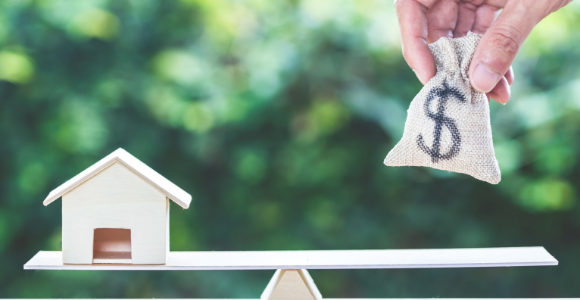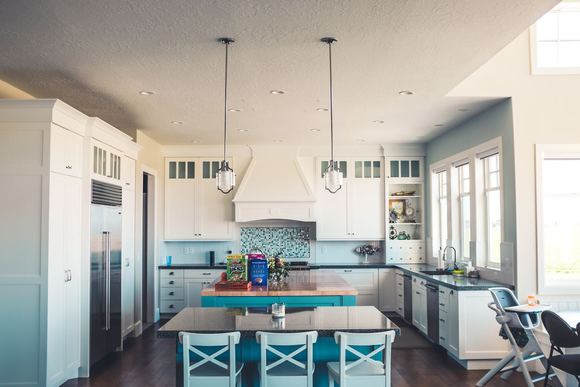How much deposit do I need as a First Home Buyer?

DISCLAIMER: This information is not intended as financial advice or a recommendation. It does not take into account your individual needs or financial situation. We recommend you always seek independent legal and financial advice.
There’s a misconception that having at least a 20% deposit is the only option for a First Home Buyer. Whereas, the amount of deposit needed to buy a house in New Zealand can be from as low as 5% ... enabling First Home Buyers to pursue their dream of owning a property by using low deposit home loans.
![]() To help you achieve a home deposit, check out these two products which you may be eligible for to give your deposit a boost:
To help you achieve a home deposit, check out these two products which you may be eligible for to give your deposit a boost:
- KiwiSaver First-Home Withdrawal. If you have been a member of KiwiSaver for at least 3 years, you may be able to make a withdrawal from your savings to put towards a deposit for buying your first home. For more information go to 👉 Kainga Ora KiwiSaver First Home Withdrawal
- First Home Grant. If you’ve been contributing to your KiwiSaver for at least 3 years, you may be eligible for a First Home Grant of up to $10,000 to top up your deposit. For more information go to 👉 Kainga Ora First Home Grant
What are the deposit options for a First Home Buyer?
5% Deposit
Having saved a 5% deposit, you may be eligible for the following financial support products available to First Home Buyers:
First Home Partner
- First Home Partner is a shared ownership scheme to help aspiring first home buyers whose deposit and home loan aren’t quite enough to buy a home that meets their needs, purchase a home together with Kāinga Ora.
- Shared ownership means that you initially share ownership of the home with a third party who purchases the home with you (in this case Kāinga Ora). You are the majority homeowner and occupier, but Kāinga Ora will own a share in the home that you will buy out over time.
- Who is Eligible?
- NZ citizen, permanent resident, or resident visa holder
- Over 18 years of age
- Total household income of no more than $150,000 before tax
- Have a good credit rating
- First Home Buyer
- Not previously received shared ownership assistance from Kāinga Ora - For more information, visit: Kainga Ora First Home Partner
- To see if First Home Partner might be right for you, complete this form and our registered mortgage advisor, Dustin, will be in contact.
First Home Loan
- First Home Loans are issued by select banks, building societies and credit unions, and underwritten by Kāinga Ora. They are designed to assist first home buyers who may be able to service a mortgage, but not have the savings up front to provide a full deposit.
- Key points:
- Allows for 5% deposit
- Income criteria: Have a before tax income from the last 12 months of:
- $95,000 or less for an individual buyer without dependents; or
- $150,000 or less for an individual buyer with one or more dependents; or
- $150,000 or less (combined) for two or more buyers, regardless of the number of dependents. - Find out more at: Kainga Ora First Home Loan
YouOwn
- YouOwn is a co-ownership scheme whereby, you buy a portion of the property you can afford now, and YouOwn help with the rest. You pay a charge on YouOwn's portion and after five years, you can buy YouOwn's share when you are able to. You have all the rights of ownership and, subject to compliance with relevant law, you are free to alter and maintain the house as you wish.
- Who is Eligible?
- NZ Citizen / Permanent Resident
- Household income of $130,000+
- Less than $15,000 in debt
- 3 years contributing to KiwiSaver
- 5% deposit from savings and or KiwiSaver - Find out more at: YouOwn A helping hand to first home buyers
10% Deposit
Achieving a 10% home deposit opens up the possibility of purchasing a New Build home. This is because New Build homes are exempt from Loan-to-Value (LVR) ratio restrictions the Reserve Bank places on banks. The bank will consider deposits as low as 10%, but borrowers would still need to meet the affordability and serviceability criteria to qualify.
Here are some advantages and disadvantages of a 10% deposit for a New Build home:
Advantages:
- Lower upfront costs: A 10% deposit means that you'll need less cash upfront to purchase the property, which can be an advantage if you don't have a lot of savings. Therefore, you don't have to save as much to keep up with the market, getting you into your first home quicker.
- More flexibility: With a 10% deposit, you may be able to buy a property sooner than if you were saving up for a 20% deposit. This can be beneficial if you're in a hurry to buy a home.
- Lower maintenance: Because your new home is a New Build, there will be less initial maintenance. For example, you won’t need to worry about buying a new roof in the near future.
- More time to save: Depending on when the finishing date for the development is, you may have more time to save.
Disadvantages
- Higher costs in the long term: With a lower deposit, your monthly mortgage repayments will be higher, and you may also be required to pay lenders mortgage insurance (LMI). This can add up to thousands of dollars over the life of the loan. Note: Some lenders do allow for the removal of the interest rate margin if a valuation shows 20% equity. This is easier to achieve in a rising housing market, however will take longer in a decreasing market.
- Higher interest rates: Lenders may charge higher interest rates on low deposit loans, which means you'll be paying more in interest charges over the life of the loan.
- Less equity in the property: With a lower deposit, you'll have less equity in the property, which can be a disadvantage if property values fall. It also means you may have less negotiating power if you need to sell the property in the future.
Overall, a 10% deposit for a New Build home can be a good option if you're keen to get onto the property ladder sooner rather than later. However, it's important to weigh up the advantages and disadvantages and consider whether it's the best option for your financial situation.
![]() We understand the challenge First Home Buyers face finding affordable housing in Auckland's property market. Therefore, we’ve compiled a list of New Build houses for sale in Auckland, including options for first home buyers, at FHBC Auckland Housing Developments. Sign up to our monthly newsletter to stay up-to-date with the latest housing developments, including options for first home buyers.
We understand the challenge First Home Buyers face finding affordable housing in Auckland's property market. Therefore, we’ve compiled a list of New Build houses for sale in Auckland, including options for first home buyers, at FHBC Auckland Housing Developments. Sign up to our monthly newsletter to stay up-to-date with the latest housing developments, including options for first home buyers.
![]() Before purchasing a New Build home, check out this blog from Schnauer & Co, The main risks of buying off the plans which explains the difference between a Land and Build Contract, as well as what different clauses in the Sale & Purchase agreement mean.
Before purchasing a New Build home, check out this blog from Schnauer & Co, The main risks of buying off the plans which explains the difference between a Land and Build Contract, as well as what different clauses in the Sale & Purchase agreement mean.
20% plus Deposit
20% plus is the ideal home deposit, but in reality this is a big ask for First Home Buyers in today’s market. However, a deposit of at least 20% of the property's purchase price is typically required to avoid paying low deposit costs.
If you are able to achieve a 20% deposit for a home purchase, there are several advantages:
- Lower monthly repayments: When you put down a 20% deposit, you are borrowing less money, which means your monthly mortgage repayments will be lower. This can help make homeownership more affordable and easier to manage.
- No low deposit costs: For some banks this is an upfront fee based on the size of the loan. For others, it is a margin added on top of the interest rate offered. Generally, depending on your lender and the amount of deposit, this can range from 0.25% to 1.5%.
- Lower interest rates: Many lenders offer lower interest rates to borrowers who have a larger deposit. This is because a larger deposit reduces the lender's risk and increases the borrower's equity in the property, making the loan less risky for the lender.
- Easier to arrange finance: When you have a 20% deposit, it can often be easier to arrange finance. However, we would normally suggest a 10 working days finance clause in your Sale & Purchase agreement if clients have a pre-approval, and 15 days if they don't have pre approval.
- Greater equity in the property: By putting down a larger deposit, you will have greater equity in the property from the outset. This means you will own a larger portion of the property and will be in a stronger financial position if the property increases in value over time.
Overall, a 20% deposit can provide significant financial benefits when purchasing a home. It can help reduce your ongoing costs, improve your negotiating position, and increase your equity in the property.
For further information about low deposits, check out 👉 All you need to know about low deposits on our website.
Home Readiness Quiz
Not sure where you are on the homeownership journey, or simply want to check? Get the ball rolling by taking our 1-minute 👉 Home Readiness Quiz and we'll provide you with feedback and guidance on your next steps to home ownership.


